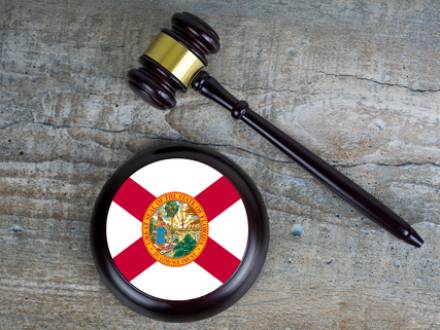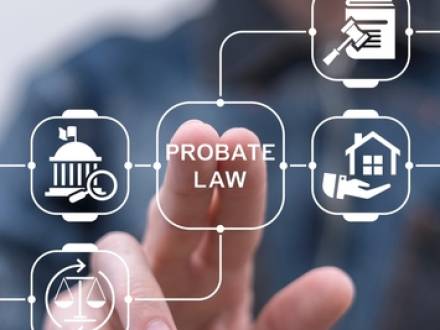Recent Blog Posts
Can I Choose My Child’s School if We Get Divorced?
 For divorced parents in Miami, one of the most difficult decisions is where a child should attend school. A new school may promise better academic programs or a shorter commute, but it can also mean disrupting friendships, routines, and a child’s sense of stability. Florida law treats school choice as a major parenting decision, which means that one parent cannot simply make the switch without the other’s agreement or a court order.
For divorced parents in Miami, one of the most difficult decisions is where a child should attend school. A new school may promise better academic programs or a shorter commute, but it can also mean disrupting friendships, routines, and a child’s sense of stability. Florida law treats school choice as a major parenting decision, which means that one parent cannot simply make the switch without the other’s agreement or a court order.
Under Florida Statute § 61.13, educational decisions are part of what the law calls "parental responsibility." In most cases, parents share parental responsibility, which requires them to make major decisions, including school choice, together. If parents cannot agree, the court must decide based on the child’s best interests.
If you are divorced and hoping to change your child’s school, talk to our Miami, FL family lawyers. We will work with your unique situation to help you understand your options.
How Can I Get Full Custody in a Florida Divorce?
 In Florida, parents going through divorce often want to know how they can get "full custody" of their child. Sometimes, it is because the other parent is uninvolved or unpredictable. Other times, it is because the child has special needs, or one parent is more equipped to provide day-to-day care.
In Florida, parents going through divorce often want to know how they can get "full custody" of their child. Sometimes, it is because the other parent is uninvolved or unpredictable. Other times, it is because the child has special needs, or one parent is more equipped to provide day-to-day care.
No matter the reason, it is important to understand that Florida divorce and family law no longer uses the term "custody," and that obtaining full decision-making authority or majority time-sharing requires strong evidence and careful legal strategy.
Florida’s family law system is designed to prioritize the best interests of the child. Courts begin with the assumption that children benefit from having a strong, ongoing relationship with both parents. That means full parental responsibility or sole time-sharing will only be awarded if it clearly serves the child’s well-being, and if the parent requesting it can show why shared responsibility is not appropriate. Our Miami family lawyers can help you make that argument.
Can I Keep Inherited Assets if We Divorce?
 When divorce is on the horizon, one of the first things people worry about is their money, especially anything they did not earn during the marriage. If you inherited money or property from a parent, grandparent, or other loved one, you may wonder whether your spouse can claim a share. In Florida, the answer is usually no, but there are important exceptions that could change that.
When divorce is on the horizon, one of the first things people worry about is their money, especially anything they did not earn during the marriage. If you inherited money or property from a parent, grandparent, or other loved one, you may wonder whether your spouse can claim a share. In Florida, the answer is usually no, but there are important exceptions that could change that.
Under Florida statute 61.075, inheritances are considered separate property. This means they are not subject to division during a divorce, even if the inheritance was received during the marriage. However, inherited assets can lose their separate status depending on how they are handled. Our Miami, FL divorce attorneys skillfully handle high net worth divorces and can help you think through your options for managing separately owned assets. Call us today at 305-520-7874.
Strategies for Protecting Kids From the Negative Effects of Divorce
 For parents, the divorce process brings not only legal and financial challenges but also emotional ones as they try to shield their children from the fallout. Parents going through divorce often ask how they can protect their kids from stress, anxiety, and lasting emotional harm. While divorce is never easy, there are proven steps parents can take to help children adjust in healthy ways and minimize the negative effects of this major life change. Talk to our Miami, FL family lawyers to learn about options for child custody and supporting your children in your divorce.
For parents, the divorce process brings not only legal and financial challenges but also emotional ones as they try to shield their children from the fallout. Parents going through divorce often ask how they can protect their kids from stress, anxiety, and lasting emotional harm. While divorce is never easy, there are proven steps parents can take to help children adjust in healthy ways and minimize the negative effects of this major life change. Talk to our Miami, FL family lawyers to learn about options for child custody and supporting your children in your divorce.
Why Are Children So Vulnerable During Divorce?
When parents separate, children can feel like their world is being turned upside down. Changes in living arrangements, routines, and family dynamics can lead to fear, confusion, and sadness. Children may internalize blame for the divorce or worry about losing the love and support of one or both parents.
How Does Seasonal Living Complicate Child Custody for Snowbird Families in Florida?
 More and more families are embracing a lifestyle that spans multiple states. Whether due to remote work, flexible schooling, or a desire to own property in different climates, the traditional snowbird model that was once limited to retirees is now being adopted by younger parents and their children. While this arrangement may offer lifestyle benefits, it can also create complicated legal challenges when parents separate or divorce. One of the most pressing issues involves child custody.
More and more families are embracing a lifestyle that spans multiple states. Whether due to remote work, flexible schooling, or a desire to own property in different climates, the traditional snowbird model that was once limited to retirees is now being adopted by younger parents and their children. While this arrangement may offer lifestyle benefits, it can also create complicated legal challenges when parents separate or divorce. One of the most pressing issues involves child custody.
As of June 2025, Florida courts continue to rely on well-established state laws and national standards to determine jurisdiction and parenting arrangements, even in cases involving families who live seasonally in multiple states. If you are a snowbird considering divorce, speak with a qualified Miami, FL divorce lawyer to understand the options and implications.
Ancillary vs. Summary Administration During Probate
 Florida probate can be a complicated process, especially when someone passes away owning property in more than one state. Two forms of probate administration commonly arise in these cases: ancillary administration and summary administration. As of June 2025, the Florida Probate Code continues to distinguish between these two paths based on the location and value of the decedent’s assets. Understanding the difference is essential for surviving family members, executors, and anyone handling cross-state estates. Knowing which probate process is right for your family will depend on the circumstances, and our Miami, FL probate and family law attorneys are here to help.
Florida probate can be a complicated process, especially when someone passes away owning property in more than one state. Two forms of probate administration commonly arise in these cases: ancillary administration and summary administration. As of June 2025, the Florida Probate Code continues to distinguish between these two paths based on the location and value of the decedent’s assets. Understanding the difference is essential for surviving family members, executors, and anyone handling cross-state estates. Knowing which probate process is right for your family will depend on the circumstances, and our Miami, FL probate and family law attorneys are here to help.
What Is Ancillary Administration in Florida?
Ancillary administration is used when a non-Florida resident dies owning property in Florida. The main probate case is handled in the person’s state of residence, but a separate proceeding — called ancillary administration — must be opened in Florida to deal with real estate or tangible assets located here.
How Fast Can You Get Divorced in Florida?
 Many people who file for divorce in Florida want the process to move quickly. Whether the marriage ended peacefully or followed months of conflict, most divorcing spouses prefer to move on with their lives without unnecessary delay. But how fast can a divorce actually happen in Florida — and what can you do to speed things up?
Many people who file for divorce in Florida want the process to move quickly. Whether the marriage ended peacefully or followed months of conflict, most divorcing spouses prefer to move on with their lives without unnecessary delay. But how fast can a divorce actually happen in Florida — and what can you do to speed things up?
At our Miami, FL family law attorneys help families resolve legal issues with care, efficiency, and access to a strong network of professionals. From the beginning of the divorce to the final judgment, we work closely with our clients to identify their goals and create realistic timelines for getting there.
What Is the Waiting Period for Divorce in Florida?
Under Florida law, there is a mandatory waiting period of 20 days after a divorce petition is filed before the court can finalize a divorce. However, this is only the minimum. Most cases take longer depending on how quickly the couple can resolve issues like parenting time, property division, and spousal support.
When and How to Modify Alimony in Florida
 Change is an inevitable element of life, and the family courts of Florida recognize that some elements of a divorce settlement may need adjustment post-decree. For this reason, you have an avenue to modify alimony when the situation calls for it. An experienced Miami, FL alimony attorney can help you navigate the legal process, including requests to minimize alimony obligations. Before taking the first step to file a petition for modification, consider the requirements and circumstances where the court may not allow a change in payments.
Change is an inevitable element of life, and the family courts of Florida recognize that some elements of a divorce settlement may need adjustment post-decree. For this reason, you have an avenue to modify alimony when the situation calls for it. An experienced Miami, FL alimony attorney can help you navigate the legal process, including requests to minimize alimony obligations. Before taking the first step to file a petition for modification, consider the requirements and circumstances where the court may not allow a change in payments.
What Are the Requirements for Modifying Alimony in Florida?
When determining whether or not to award alimony during your divorce, the court assesses several relevant factors outlined under Florida law. When you file a petition to modify that order, the court looks for three elements:
What Should I Do if My Ex is Turning My Child Against Me?
 Most people do not expect divorce to be easy, including the process of adjusting to life after divorce. Unfortunately, for some people, their lives become even more difficult than they expected when their former spouse tries to actively bias their shared children against them. If you are reading this blog, chances are that you are worried that your former spouse is doing this to you.
Most people do not expect divorce to be easy, including the process of adjusting to life after divorce. Unfortunately, for some people, their lives become even more difficult than they expected when their former spouse tries to actively bias their shared children against them. If you are reading this blog, chances are that you are worried that your former spouse is doing this to you.
If you are concerned about the impact of potential parental alienation on your relationship with your child, contact a Miami, FL child custody lawyer with our firm right away. We take client concerns seriously and will discuss your options with you.
What is Parental Alienation?
Very few states encode the meaning of parental alienation into law, but the concept is well understood in terms of the kinds of behaviors that most people consider parental alienation – and family law courts in Florida do not like to see parents doing it.
How To Prepare for a Child Custody Modification Hearing
 Child custody orders – known in Florida as "parenting plans" – are expected to remain in place for an extended period, but the court acknowledges that circumstances can change for parents and children. When this happens, one or both parents can file a petition to modify the custody agreement, whether the modification is of decision-making authority or time-sharing.
Child custody orders – known in Florida as "parenting plans" – are expected to remain in place for an extended period, but the court acknowledges that circumstances can change for parents and children. When this happens, one or both parents can file a petition to modify the custody agreement, whether the modification is of decision-making authority or time-sharing.
The next step will be to prepare for the hearing, starting with understanding what the court deems reasonable grounds for custody modification. Before you step into the courtroom, consider working with our experienced Florida child custody attorneys to determine the best course of action and better your chances of a favorable outcome.
Understanding the Grounds for Child Custody Modification
Under Florida law, you can typically modify a custody order if you can prove a substantial change has occurred. The court is often very particular about what constitutes a change large enough to affect the child’s best interests. For example, a parent’s relocation, remarriage, or incarceration could justify a change in custody. If your child’s needs significantly changed, the court will likely want to hear your claim.
Contact Miami Family Law Group, PLLC
Our attorneys are ready to help address your legal needs. Schedule an appointment by calling 305-520-7874 or contacting us online.










